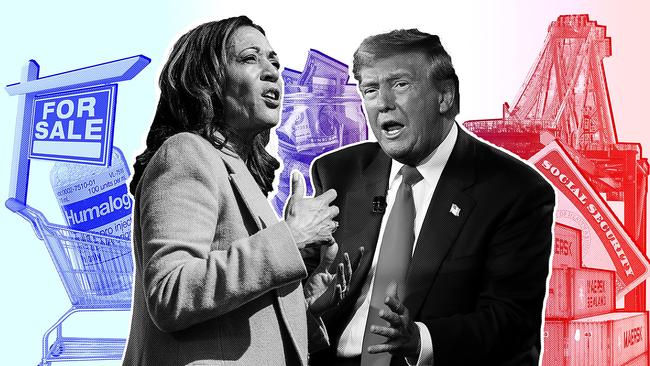
Vice-President Kamala Harris got a very small polling bump after her TV debate with Trump. The election is so close even a small bump is important. The vice-presidential debate, where Trump’s running mate, JD Vance, clearly beat Democrat Tim Walz, stopped the Harris momentum. Vance put the case about the Biden-Harris policy failures much more strongly and clearly than Trump himself had done.
The next momentum definer was Harris finally doing a series of unscripted interviews with 60 Minutes, The View, Howard Stern and others.
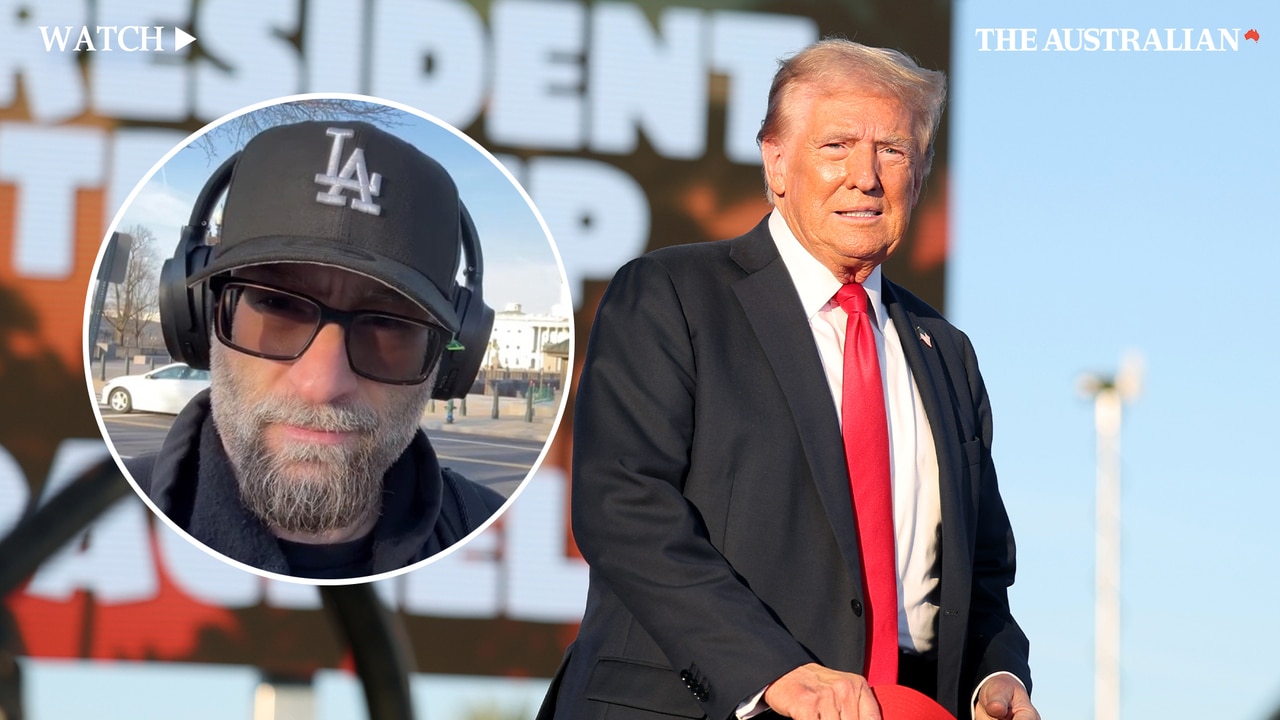
These were all favourable, pro-Harris settings. Yet she was woeful. Even the friendliest question seemed to produce a stammering, hesitant, agonised retreat to her few rote phrases: “I come from a middle-class background, I’ve been a prosecutor, I’ve locked up people traffickers …”
Some of these interviews she didn’t even do live. They were meant to be “as live”. But in some cases her answers were so awful and the media outlet so sympathetic that when it finally broadcast the interview it cut out all the stammering, incoherent stuttering at the start of answers.
On The View she was asked what she would have done differently to Joe Biden. This presents a very minor challenge for a politician who doesn’t want to appear disloyal to the President but who is marketing herself as the change candidate. The obvious reply is: Biden has been a great president but one area where I think we could have done even better was … Then put in anything you like on the border, inner-city crime, etc. Instead Harris said she couldn’t think of a single thing.
All these Harris moments have become internet memes. Now, you might rightly say that 20 per cent of everything Trump says continues to be offensive, wrong or slightly nuts. That’s true. But Trump is on the media every day, doing countless interviews, speaking at countless rallies. So is Vance. Their views on key policy and values issues are pretty clear.
It may be that neither the debates nor the interviews are having a big effect, but marginal differences are crucial. The RealClearPolitics poll average now has Harris leading by 1.7 per cent nationally. That’s a narrower lead than she had a couple of weeks ago. At this stage in 2020 Biden was ahead of Trump by 10 per cent in the polls. At this point in 2016 Hillary Clinton was leading Trump by 7 per cent.
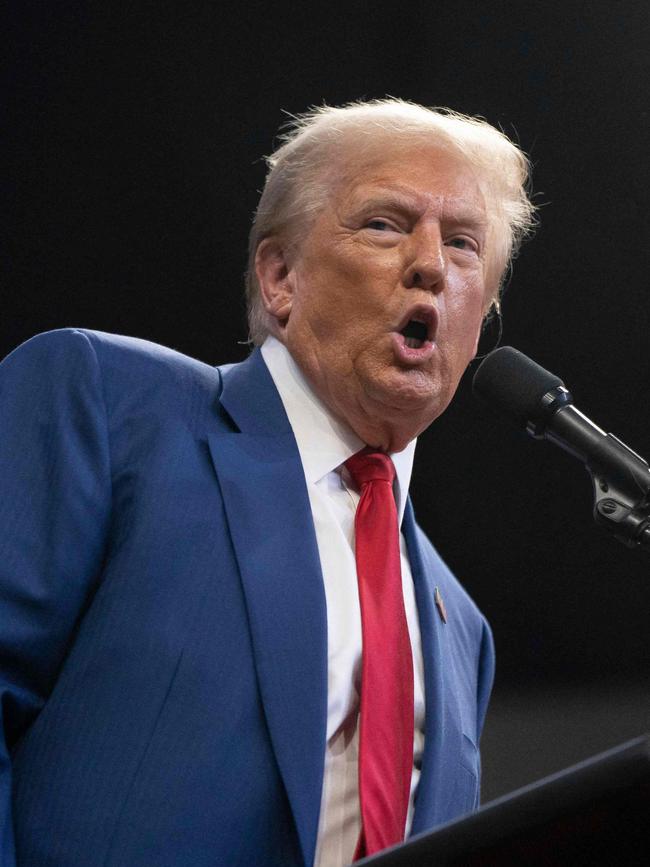
In both elections the polls seriously underestimated Trump’s vote and both results finally were extremely tight in the battleground states. If the polls are underestimating Trump by anything like those margins this time, the election is already effectively over and Trump’s a handsome winner.
But, and this is a huge but, politics is not the common law. It’s not bound by precedent. Given that there are only seven battleground states where this election will be decided, the state-based polls are particularly important. And the state-based polls have a poor record of reliability. But they all will try to correct for their anti-Trump bias last time.
However, even on the published polls, Trump, right now, is leading in the battleground states. This lead overall is tiny, just 0.4 per cent. RCP’s poll average at this stage gives Trump six of the battleground states – Pennsylvania, North Carolina, Georgia, Michigan, Arizona and Nevada. And it gives only one to Harris, Wisconsin.
So, with no toss-up states, that gives Trump what his former aide, Kellyanne Conway, describes as a “narrow landslide” in the electoral college, where he wins 302 to 236. However the RCP no toss-up map has changed back and forth between Trump winning and Harris winning several times.
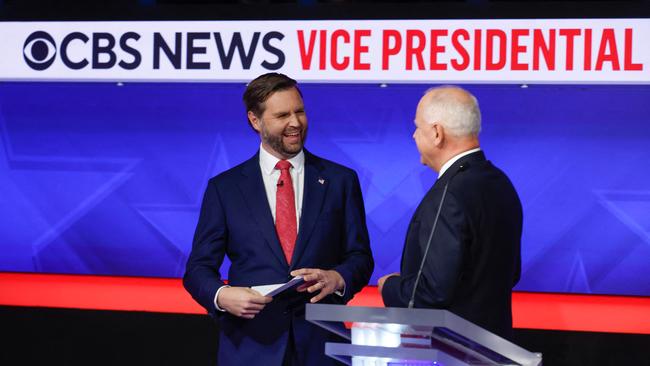
The Economist magazine this week reports that its model gives Harris a 51 per cent chance of victory, which means essentially it’s even. The betting markets, which have a pretty good record, now substantially favour Trump.
Harris is doing better in the polls than Biden did with one important demographic, white college graduates. But she is doing substantially worse than Biden did with working-class voters, with Hispanics, with blacks, with men and with Catholics. Some of those constituencies she will still win, but she’ll win them by smaller margins than Biden did. That hurts her chances overall.
Hispanics are now supporting Trump at about 40 per cent, more in battleground states. That suggests they’ve become a wholly competitive demographic, which is good for American democracy. The Democrats’ woke cultural hostility to religion is hurting them with Hispanics, and with Catholics, whom Harris will lose.
Nonetheless, Trump could still lose the election. A New York Times/Siena College poll of Pennsylvania, with a respectable sample size and solid methodology, puts Harris ahead in Pennsylvania. Assuming Harris wins one electoral college vote from Nebraska – which, with Maine, is one of only two states to allocate electoral college votes by congressional districts – then Trump must win one of Wisconsin, Michigan or Pennsylvania.
Harris will win if she holds on to the three rust-belt states. No polls really give Wisconsin to Trump, he has been mostly behind in Michigan, so just as the 2000 election between George W. Bush and Al Gore came down to Florida, this election may come down to Pennsylvania.
Democrats are desperate to stop Trump, so I expect from them an October surprise, possibly some extravagant legal move against Trump, and an election day surprise, some new alleged revelation about him that he has no time to counter. These tactics haven’t worked well for Democrats so far, but if the election is indeed tight, and such “surprises” could scare off even 100,000 Trump voters out of perhaps 160 million votes overall, they just may make the difference.
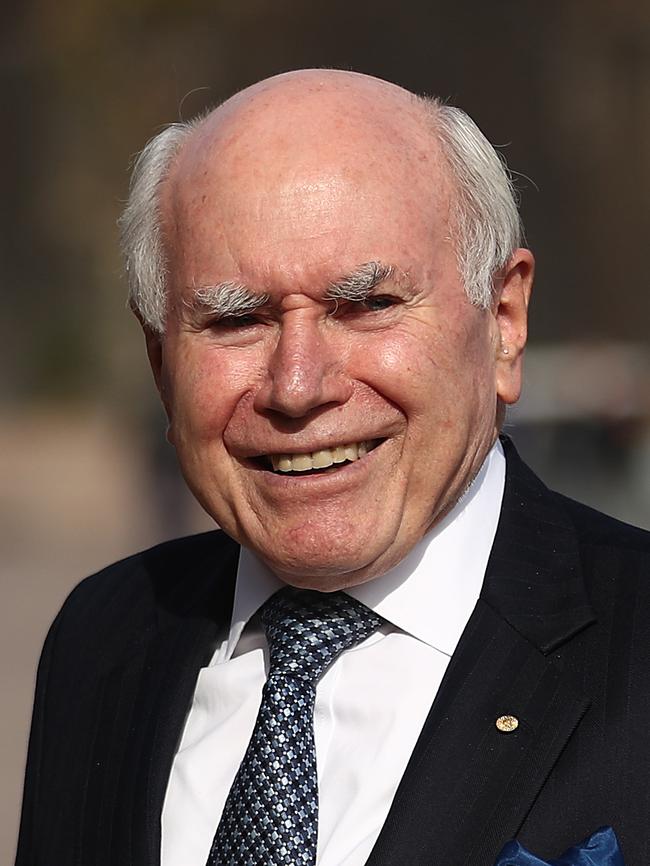
A final thought. These are, as John Howard argued at the weekend, two terrible candidates. Nonetheless, from Australia’s point of view there’s a serious case Trump would be better. Despite pro-alliance policy, and despite eye-watering government expenditure generally, every year Biden has proposed a real cut in US defence spending after inflation. His budget this year provided for the US building only one nuclear attack submarine in the year.
AUKUS simply cannot possibly come to reality, in terms of delivering us nuclear-powered submarines, under those policies. Harris is well to the left of Biden and has always favoured defence spending cuts. Her abysmal interview performances suggest she’ll be a weak president, enslaved to the zeitgeist and following the mood of her party, which is trending left.
Trump is broadly unpredictable but will spend substantially more on defence and probably produce a stronger, tougher America. That fact alone makes him likely the better option for us.







Assuming he doesn’t get assassinated before election day, it’s looking likely that Donald Trump will be the next US president. That leads me to believe Democrats will spring both an October surprise and an election day surprise in desperate last-minute efforts to keep Trump out of office.